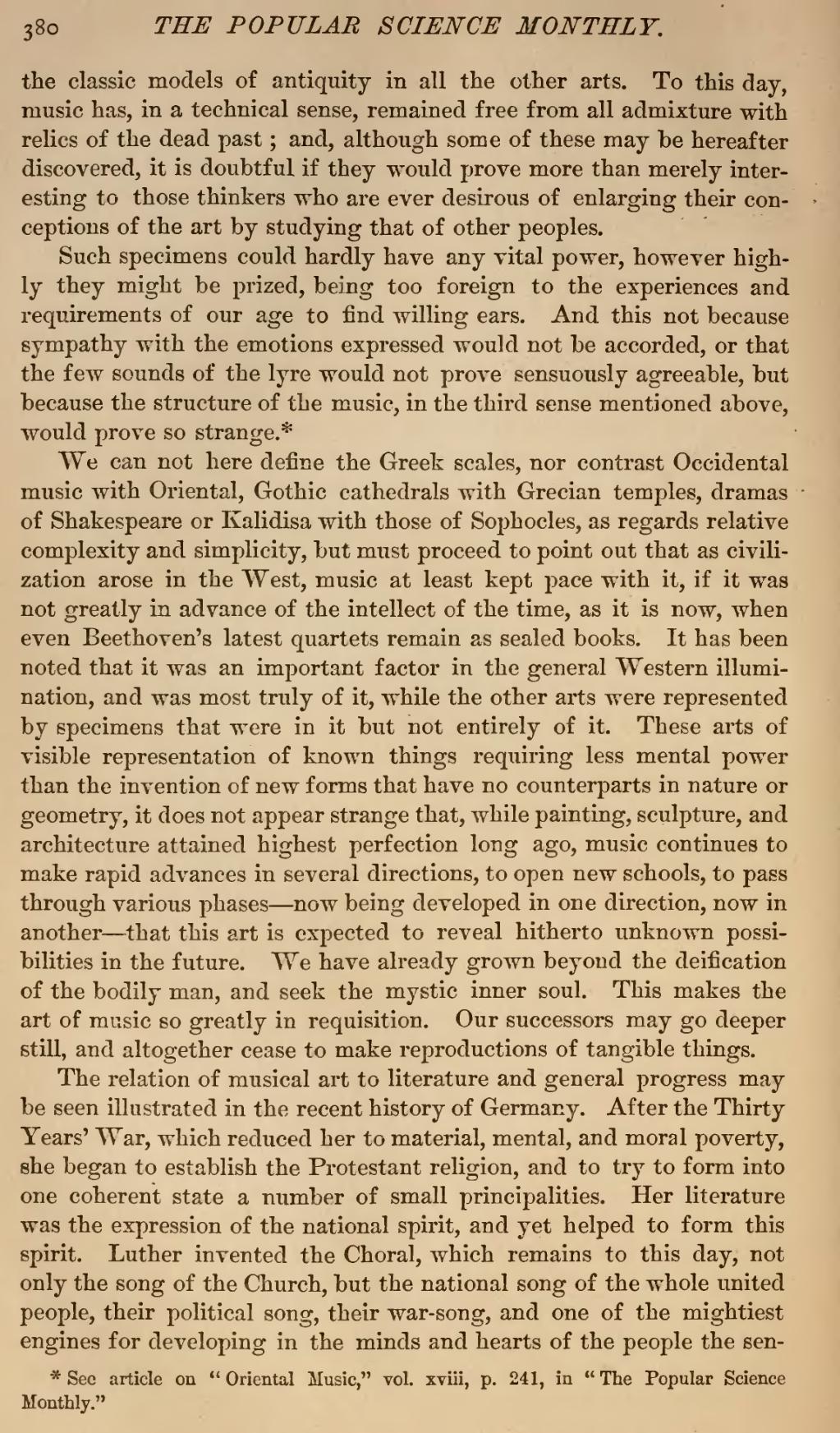the classic models of antiquity in all the other arts. To this day, music has, in a technical sense, remained free from all admixture with relics of the dead past; and, although some of these may be hereafter discovered, it is doubtful if they would prove more than merely interesting to those thinkers who are ever desirous of enlarging their conceptions of the art by studying that of other peoples.
Such specimens could hardly have any vital power, however highly they might be prized, being too foreign to the experiences and requirements of our age to find willing ears. And this not because sympathy with the emotions expressed would not be accorded, or that the few sounds of the lyre would not prove sensuously agreeable, but because the structure of the music, in the third sense mentioned above, would prove so strange.[1]
We can not here define the Greek scales, nor contrast Occidental music with Oriental, Gothic cathedrals with Grecian temples, dramas of Shakespeare or Kalidisa with those of Sophocles, as regards relative complexity and simplicity, but must proceed to point out that as civilization arose in the West, music at least kept pace with it, if it was not greatly in advance of the intellect of the time, as it is now, when even Beethoven's latest quartets remain as sealed books. It has been noted that it was an important factor in the general Western illumination, and was most truly of it, while the other arts were represented by specimens that were in it but not entirely of it. These arts of visible representation of known things requiring less mental power than the invention of new forms that have no counterparts in nature or geometry, it does not appear strange that, while painting, sculpture, and architecture attained highest perfection long ago, music continues to make rapid advances in several directions, to open new schools, to pass through various phases—now being developed in one direction, now in another—that this art is expected to reveal hitherto unknown possibilities in the future. We have already grown beyond the deification of the bodily man, and seek the mystic inner soul. This makes the art of music so greatly in requisition. Our successors may go deeper still, and altogether cease to make reproductions of tangible things.
The relation of musical art to literature and general progress may be seen illustrated in the recent history of Germany. After the Thirty Tears' War, which reduced her to material, mental, and moral poverty, she began to establish the Protestant religion, and to try to form into one coherent state a number of small principalities. Her literature was the expression of the national spirit, and yet helped to form this spirit. Luther invented the Choral, which remains to this day, not only the song of the Church, but the national song of the whole united people, their political song, their war-song, and one of the mightiest engines for developing in the minds and hearts of the people the sen-
- ↑ See article on "Oriental Music," vol. xviii, p. 241, in "The Popular Science Monthly."

